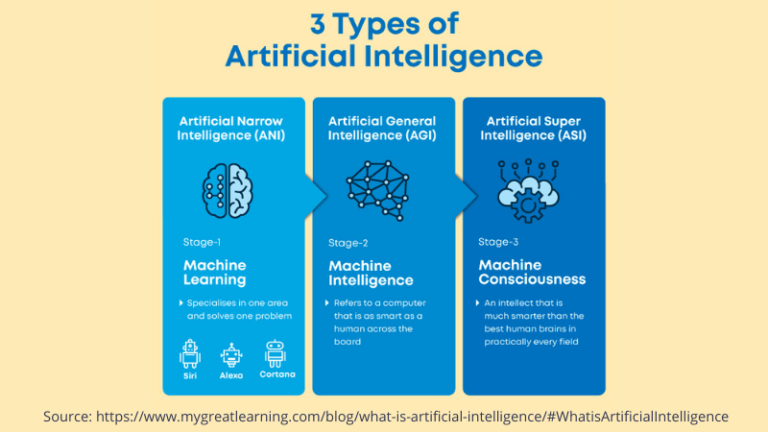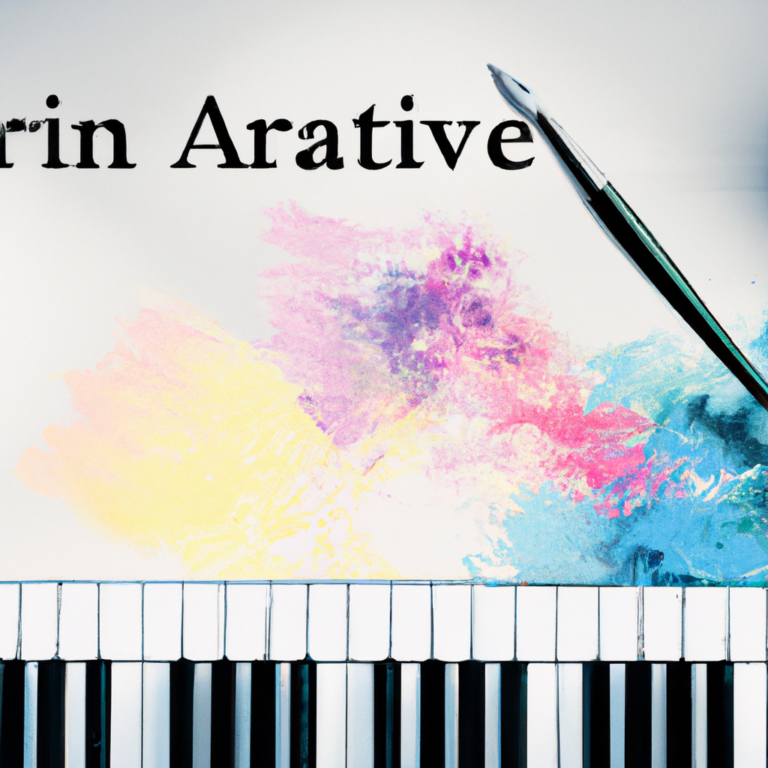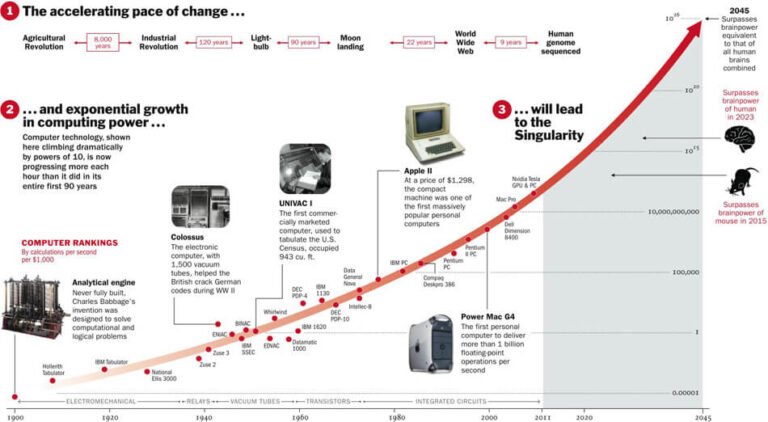AI And How To Use AI To Make Our World A Better Place: How Can We Use AI To Make The World A Better Place?

Imagine a world where artificial intelligence (AI) is not just a concept in science fiction movies, but a reality that improves our everyday lives. In this article, we will explore the fascinating realm of AI and discover how it can be harnessed to make our world a better place. From healthcare advancements to environmental sustainability, AI has the potential to revolutionize various aspects of our society. So, buckle up and get ready to embark on a journey to uncover the endless possibilities of using AI for the greater good.

The Potential of AI for Societal Benefits
Artificial Intelligence (AI) has the potential to revolutionize various aspects of our society and improve the overall well-being of individuals. By leveraging the capabilities of AI, we can enhance healthcare, improve education, address climate change, promote environmental conservation, enhance transportation and infrastructure, revolutionize agriculture, empower people with disabilities, enhance cybersecurity, advance scientific research, and transform social services. AI offers promising solutions to many of the challenges faced by society, and its applications can create a positive impact on our lives.
Enhancing Healthcare
AI has the potential to significantly improve healthcare by enabling faster and more accurate diagnosis, personalized treatment plans, and optimized healthcare operations. AI algorithms can analyze vast amounts of medical data, identify patterns, and provide valuable insights to healthcare professionals. This can lead to early detection of diseases, more effective treatment plans, and better patient outcomes. Additionally, AI-powered robots and virtual assistants can provide support in surgical procedures and patient monitoring, enhancing the efficiency and effectiveness of healthcare delivery.
Improving Education
AI can transform education by providing personalized and adaptive learning experiences to students. Intelligent tutoring systems can analyze individual learning patterns and tailor educational content accordingly, ensuring efficient learning and better student engagement. AI-powered tools can also facilitate remote learning, allowing students to access quality education regardless of their geographical location. Moreover, AI can assist educators in creating educational content, automating administrative tasks, and providing valuable feedback to enhance teaching methodologies.
Addressing Climate Change
Addressing climate change is a pressing global issue, and AI can play a crucial role in mitigating its effects. AI algorithms can analyze vast amounts of climate data and predict climate patterns more accurately, enabling better adaptation and decision-making. AI-powered systems can optimize energy consumption, reduce waste, and identify opportunities for renewable energy sources. By harnessing the potential of AI, we can develop sustainable practices, minimize environmental impact, and work towards a greener future.
Promoting Environmental Conservation
AI can aid in the conservation of natural resources and protection of biodiversity. By analyzing large datasets, AI algorithms can monitor ecosystems, identify endangered species, and detect patterns of environmental damage. This information can help develop effective conservation strategies, support wildlife preservation efforts, and promote sustainable land and resource management. AI-powered drones and sensors can also monitor illegal activities such as poaching and deforestation, facilitating timely intervention and protecting our natural heritage.
Enhancing Transportation and Infrastructure
AI can revolutionize transportation and infrastructure systems, making them more efficient, reliable, and sustainable. AI-powered algorithms can optimize traffic patterns, reduce congestion, and enhance transportation planning. Autonomous vehicles can improve road safety and reduce carbon emissions by optimizing fuel efficiency. Furthermore, AI can optimize the maintenance and management of infrastructure systems, ensuring their longevity and minimizing disruptions. Intelligent infrastructure can also enable dynamic energy distribution, making our cities more sustainable.
Revolutionizing Agriculture
AI has the potential to transform agriculture by improving crop yield, optimizing resource usage, and enabling sustainable practices. With AI-powered systems, farmers can analyze soil conditions, weather patterns, and crop characteristics to make data-driven decisions. This can result in optimized irrigation, fertilization, and pest management, leading to increased yields and reduced environmental impact. AI can also facilitate crop monitoring, disease detection, and agricultural robotics, ensuring efficient farming practices while minimizing labor requirements.
Empowering People with Disabilities
AI can empower individuals with disabilities by providing assistive technologies that enhance their independence and quality of life. AI-powered devices and applications can assist in mobility, communication, and daily tasks, enabling greater accessibility and inclusivity. Natural language processing and computer vision can facilitate communication for individuals with speech or hearing impairments. AI can also support prosthetics and exoskeletons, enabling enhanced mobility and rehabilitation options. By leveraging AI, we can create a more inclusive society that empowers everyone.
Enhancing Cybersecurity
In an increasingly interconnected world, cybersecurity has become a critical concern. AI can strengthen cybersecurity defenses by analyzing vast amounts of data, detecting anomalies, and identifying potential threats in real-time. AI algorithms can improve threat detection and response capabilities, ensuring proactive defense mechanisms. Additionally, AI can enhance user authentication systems, protect privacy, and enable secure data exchange. By leveraging AI in cybersecurity, we can safeguard digital infrastructure, protect sensitive information, and ensure the integrity of digital transactions.
Advancing Scientific Research
AI has the potential to revolutionize scientific research by augmenting human capabilities, enabling faster data analysis, and facilitating innovative discoveries. AI algorithms can analyze large datasets, uncover patterns and correlations, and assist researchers in making breakthroughs in various scientific disciplines. AI-powered simulations can accelerate drug discovery, protein folding, and materials science. Furthermore, AI can aid in scientific visualization, data interpretation, and hypothesis generation, empowering researchers to make significant advancements in their respective fields.
Transforming Social Services
AI can transform social services by optimizing the delivery of public assistance, promoting equitable access to resources, and addressing social issues more effectively. By analyzing large-scale data, AI algorithms can identify patterns of social vulnerability and enable targeted interventions. AI-powered chatbots and virtual assistants can enhance the efficiency of public service delivery and provide personalized support to individuals in need. Additionally, AI-powered platforms can connect individuals with relevant social services, ensuring that resources are allocated efficiently and equitably.
Challenges and Ethical Considerations
While AI offers immense potential for societal benefits, it also poses certain challenges and ethical considerations that need to be addressed to ensure responsible and equitable deployment.
Job Displacement and Workforce Changes
The increasing automation driven by AI can lead to job displacement and significant changes in the workforce. It is crucial to ensure that the transition to an AI-powered workforce is inclusive and sustainable. This can be achieved by retraining and upskilling workers, creating new job opportunities in emerging AI-related fields, and establishing social safety nets to support individuals affected by job displacement.
Data Privacy and Security
With the vast amount of data collected and analyzed by AI systems, ensuring data privacy and security is paramount. Regulations and policies need to be implemented to protect individuals’ privacy and prevent unauthorized access to sensitive information. Organizations must adopt robust security measures and transparent data governance frameworks to build trust and maintain data integrity throughout the AI lifecycle.
Ethical Use of AI
The ethical implications of AI deployment need to be thoroughly considered. AI systems must be designed and deployed in a manner that adheres to ethical principles such as fairness, transparency, and accountability. Ethical frameworks and guidelines can help guide AI development and ensure that AI technologies are used in a manner that aligns with societal values and respects human rights.
Bias and Discrimination
AI algorithms can inadvertently reflect the biases present in the data they are trained on, leading to unfair or discriminatory outcomes. It is essential to address bias and discrimination in AI systems by promoting diverse and representative datasets, implementing fairness metrics, and continuously monitoring and mitigating bias throughout the AI development process. AI models should be designed to be transparent and explainable to identify and rectify potential biases effectively.
Lack of Transparency and Explainability
The lack of transparency and explainability in AI systems can hinder trust and accountability. It is crucial to develop AI models that can provide explanations for their decision-making processes and be audited for accountability. Explainable AI can enable better understanding, identification of potential issues, and ensure that AI systems are making decisions based on valid and reliable information.
Autonomous Weapon Systems
The development and deployment of autonomous weapons powered by AI raise significant ethical concerns. It is essential to establish international regulations to prevent the misuse of AI in weaponry and maintain human control and judgment in critical decision-making processes. Ethical considerations and restrictions should be in place to ensure the responsible use of AI in military applications.
Impact on Human Interaction
As AI becomes more integrated into our daily lives, there is a concern that the reliance on AI systems may lead to a reduced level of human interaction. It is important to strike a balance between AI utilization and interpersonal connections, ensuring that AI-enhanced technologies augment human capabilities instead of replacing human interaction and empathy.

AI Applications for Societal Good
AI has already demonstrated its immense potential across various domains, and its applications for societal good continue to expand.
AI in Healthcare Diagnosis and Treatment
AI-powered diagnostic systems can analyze medical data, assist in accurate diagnosis, and provide treatment recommendations. Machine learning algorithms can identify patterns in medical imaging to aid in the early detection of diseases. Natural language processing can analyze patient records and assist in clinical decision-making. AI-enabled robotics can assist in surgery and provide precise interventions. By harnessing the power of AI in healthcare, we can improve patient outcomes, enhance efficiency, and make healthcare more accessible.
AI-Powered Education Tools
AI-powered educational tools can individualize learning experiences and provide tailored support to students. Intelligent tutoring systems adapt to students’ learning preferences and pace, providing personalized feedback and recommendations. Natural language processing enables efficient language learning and improves reading comprehension. AI-based virtual reality and augmented reality tools can create immersive learning experiences. With AI in education, we can foster student engagement, enhance learning outcomes, and bridge educational disparities.
AI for Climate Change Prediction and Adaptation
AI can analyze vast amounts of climate data and generate accurate predictions to aid in climate change mitigation and adaptation strategies. AI algorithms can model climate patterns, identify trends, and assess the impact of various interventions. This knowledge can support policymakers, urban planners, and environmental agencies in making informed decisions for resilient infrastructure, disaster management, and resource allocation. By leveraging AI for climate change, we can work towards a sustainable future.
AI for Conservation and Biodiversity
AI can aid in the preservation of wildlife and ecosystems by monitoring habitats, identifying endangered species, and predicting ecological changes. AI-powered image recognition and acoustic monitoring systems can survey biodiversity and assist in wildlife conservation efforts. AI algorithms can analyze satellite imagery and help identify areas at risk of deforestation or degradation. By combining AI with conservation efforts, we can protect biodiversity, restore ecosystems, and ensure the sustainable use of natural resources.
AI for Smart Transportation Systems
AI can optimize transportation systems, reduce congestion, and promote sustainable transportation options. AI algorithms can analyze real-time traffic data, optimize routes, and provide personalized travel recommendations. AI-powered autonomous vehicles can improve road safety, reduce accidents, and enhance fuel efficiency. Intelligent transportation systems can minimize energy consumption and emissions by optimizing traffic flow. By leveraging AI in transportation, we can create more efficient and environmentally friendly mobility solutions.
AI in Precision Agriculture
AI can transform agriculture by optimizing crop management, resource usage, and monitoring. AI algorithms can analyze soil conditions, weather data, and crop health to provide recommendations for irrigation and fertilization. AI-powered drones and sensors can monitor crop growth, detect pests and diseases, and assist in precision spraying. This can lead to increased crop yields, reduced environmental impact, and more sustainable farming practices. AI in agriculture can ensure food security and promote environmentally friendly farming.
AI for Assistive Technologies
AI-powered assistive technologies can empower individuals with disabilities, enhancing their independence and quality of life. Natural language processing and computer vision can facilitate communication for individuals with speech or hearing impairments. Robotics and exoskeletons can assist with mobility and rehabilitation. AI-enabled smart home devices can automate daily tasks and provide assistance to individuals with physical limitations. By leveraging AI for assistive technologies, we can create a more inclusive and accessible society.
AI for Cybersecurity Defense
AI can enhance cybersecurity defenses by detecting and mitigating threats in real-time. AI algorithms can analyze network traffic, detect anomalies, and identify potential cyberattacks. Machine learning techniques can improve intrusion detection and automate response strategies. AI-powered user authentication systems can ensure secure access to digital platforms. By leveraging AI in cybersecurity defense, we can protect sensitive information, safeguard digital infrastructure, and ensure the integrity of online systems.
AI in Scientific Discovery
AI can accelerate scientific discovery by aiding in data analysis, pattern recognition, and hypothesis generation. AI algorithms can analyze vast amounts of scientific data and identify novel correlations and trends. Machine learning techniques can assist in drug discovery, materials science, and genomics research. AI-powered simulations can simulate complex phenomena and facilitate innovative experimentation. By leveraging AI in scientific research, we can expedite discoveries, push the boundaries of knowledge, and find solutions to complex scientific challenges.
AI for Social Welfare Programs
AI can optimize the delivery of social welfare programs and ensure equitable access to resources. AI algorithms can analyze large-scale data to identify vulnerable populations and allocate assistance more efficiently. AI-powered chatbots and virtual assistants can provide personalized support and guidance to individuals in need. By leveraging AI in social services, we can enhance the effectiveness of welfare programs, reduce administrative burdens, and create a more inclusive society.
Enabling Factors for AI’s Positive Impact
To maximize the positive impact of AI on society, certain enabling factors need to be considered.
Accessible and Ethical AI Education
Promoting accessible and ethical AI education is crucial to developing a skilled workforce and fostering responsible AI development and deployment. Educational institutions and organizations should provide comprehensive AI education programs, ensuring accessibility and inclusivity. Ethical considerations and responsible AI practices should be an integral part of AI education to nurture a culture of responsible AI usage.
Collaborative Efforts and Partnerships
Addressing complex societal challenges requires collaborative efforts and partnerships between various stakeholders. Governments, research institutions, industry leaders, and civil society organizations should work together to leverage AI’s potential for societal good. Collaborative initiatives can promote knowledge sharing, facilitate interdisciplinary research, and foster innovation in AI applications that benefit all.
Regulatory Frameworks and Ethical Guidelines
To ensure responsible and ethical AI deployment, regulatory frameworks and ethical guidelines need to be established. Governments and policymakers should develop clear guidelines and standards to govern AI development and usage. These frameworks should address issues such as data privacy, bias mitigation, and accountability. Regular and transparent audits of AI systems can help ensure compliance with these regulations.
Fairness and Diversity in AI Development
Promoting fairness and diversity in AI development is essential to prevent biased outcomes and to ensure AI benefits all segments of society. AI development teams should include diverse perspectives to avoid the perpetuation of biases. Datasets used for training AI algorithms should be diverse and representative of the population they serve. Developers should implement fairness metrics and techniques to identify and mitigate bias during AI model development.
Interdisciplinary Research and Knowledge Sharing
Interdisciplinary research and knowledge sharing are crucial for advancing AI applications for societal good. Collaboration between experts from different fields such as computer science, social sciences, and ethics can foster innovative solutions and address complex social challenges. Platforms for sharing research outcomes, best practices, and lessons learned should be established to promote knowledge exchange and build a collective understanding of AI’s impact on society.
Public Engagement and Participation
The engagement and participation of the public in AI development and deployment are essential to ensure AI technologies align with societal values and meet the needs of users. Public consultations, citizen juries, and stakeholder engagement can provide valuable insights, enhance transparency, and promote trust in AI systems. Involving diverse perspectives and actively seeking public input can help address concerns and ensure the responsible and equitable use of AI.
Responsible AI Governance
Clear and responsible AI governance structures are necessary to oversee the development, deployment, and regulation of AI technologies. Governments and organizations should establish governing bodies or ethics committees to monitor AI systems, enforce regulations, and address ethical concerns. These bodies should ensure that AI technologies are developed and used in a manner that respects human rights, addresses societal challenges, and aligns with ethical principles.
Data Accessibility and Quality
To harness the full potential of AI, accessible and high-quality data is essential. Governments and organizations should ensure data accessibility, promote data sharing, and foster collaborations to create comprehensive datasets for AI development. Additionally, efforts should be made to ensure data quality, reducing biases and errors that may adversely affect AI outcomes. Ensuring data transparency and integrity is critical for building trust in AI systems.
Investment in AI Research and Development
Investment in AI research and development is crucial for unlocking its potential for societal good. Governments, private organizations, and philanthropic institutions should allocate resources to fund AI projects that address societal challenges and promote responsible AI development. Continued investment in AI research and development can lead to breakthroughs in various domains and drive positive societal impact.
Technological Infrastructure and Accessibility
Access to robust technological infrastructure is necessary to harness the potential of AI. Governments and organizations should invest in building and maintaining the necessary infrastructure to enable AI deployment across various sectors. Efforts should also be made to ensure accessibility, affordability, and inclusivity in technology access, bridging the digital divide and ensuring equal opportunities for all to benefit from AI advances.
Implementing AI for a Better World
To realize AI’s potential for a better world, certain steps need to be taken to ensure responsible and equitable implementation.
Investing in AI Research and Innovation
Governments, organizations, and investors should prioritize investment in AI research and innovation. Funding should be allocated to support research initiatives that aim to address societal challenges and promote responsible AI development. Encouraging innovation through grants, funding competitions, and research partnerships can expedite the translation of AI research into practical applications that benefit society.
Developing Ethical AI Guidelines and Regulations
Clear and comprehensive ethical guidelines and regulations need to be developed to govern AI development and usage. Governments and policymakers should collaborate with experts and stakeholders to establish frameworks that address ethical considerations, data privacy, bias mitigation, and accountability. These guidelines should be regularly updated to keep pace with the evolving landscape of AI technology.
Promoting Public-Private Partnerships
Public-private partnerships can foster innovation, promote knowledge sharing, and facilitate responsible AI deployment. Collaboration between government entities, private organizations, and research institutions can leverage diverse expertise and resources to address societal challenges effectively. Public-private partnerships can also ensure that AI technologies are deployed in a manner that aligns with societal needs and values.
Addressing Bias and Fairness in AI Systems
Efforts should be made to address bias and ensure fairness in AI systems. Developers should analyze datasets for potential biases and implement techniques to mitigate bias in AI algorithms. Regular monitoring and auditing of AI systems can help identify and rectify biases in real-time. Incorporating fairness metrics and standards into AI development processes can promote responsible and equitable AI deployment.
Promoting AI Education and Skills
Investing in AI education and skills development is crucial for fostering a workforce capable of responsibly developing and utilizing AI technologies. Educational institutions should incorporate AI education into their curricula at all levels. Training programs, workshops, and online resources can be developed to upskill individuals and organizations. Promoting lifelong learning in AI-related fields can ensure the availability of a skilled workforce to drive societal progress.
Building Trust and Explainability in AI Systems
Building trust in AI systems is essential for widespread acceptance and adoption. AI developers should prioritize explainability, transparency, and interpretability, ensuring that AI systems’ decision-making processes can be understood and audited. Users should be provided with explanations for AI-generated outcomes to establish trust and confidence. By prioritizing trust and explainability, AI can be integrated into our lives in a manner that benefits individuals and society as a whole.
Ensuring Privacy and Security in AI Applications
Developers and organizations should prioritize the privacy and security of AI applications. Privacy-enhancing technologies should be employed to protect personal data and ensure compliance with data protection regulations. Robust security measures should be implemented to protect AI systems from cyber threats. Regular audits and vulnerability assessments should be conducted to identify and mitigate potential risks. By ensuring privacy and security, AI applications can be safely deployed, fostering confidence in their usage.
Monitoring and Accountability of AI Systems
Continuous monitoring and accountability of AI systems are necessary to identify and rectify any unintended consequences or biases. These monitoring processes can help ensure that AI systems are performing as intended and are aligned with ethical guidelines and regulations. Compliance mechanisms, reporting frameworks, and independent audits can help hold developers and users accountable for the ethical and responsible use of AI technologies.
Ensuring Ethical AI Usage
Promoting ethical AI usage is essential to avoid the misuse of AI technologies. Organizations should establish internal ethics committees or review boards to ensure compliance with ethical guidelines and monitor the impact of AI systems. Public awareness campaigns can educate individuals about the potential risks and ethical implications of AI deployment, empowering them to make informed decisions. By implementing measures to ensure ethical AI usage, we can harness AI’s potential for societal good.
Continuous Improvement and Adaptation
AI technologies are constantly evolving, and it is important to continuously improve and adapt AI systems to address emerging challenges and societal needs. Stakeholders should actively engage in ongoing research, development, and collaboration to leverage technology advancements and innovate in AI applications. Regular evaluation and feedback loops can help identify areas for improvement, ensuring that AI technologies continue to create a positive impact.
In conclusion, AI offers immense potential for societal benefits across various domains. By leveraging AI, we can enhance healthcare, improve education, address climate change, promote environmental conservation, enhance transportation and infrastructure, revolutionize agriculture, empower people with disabilities, enhance cybersecurity, advance scientific research, and transform social services. However, it is crucial to address the challenges and ethical considerations associated with AI deployment, such as job displacement, data privacy, bias, and lack of transparency. By implementing AI applications for societal good, enabling factors to maximize AI’s positive impact, and taking responsible steps in AI implementation, we can harness the power of AI to create a better world for all.
Want to write articles like us? Get your copy of AI WiseMind here!






